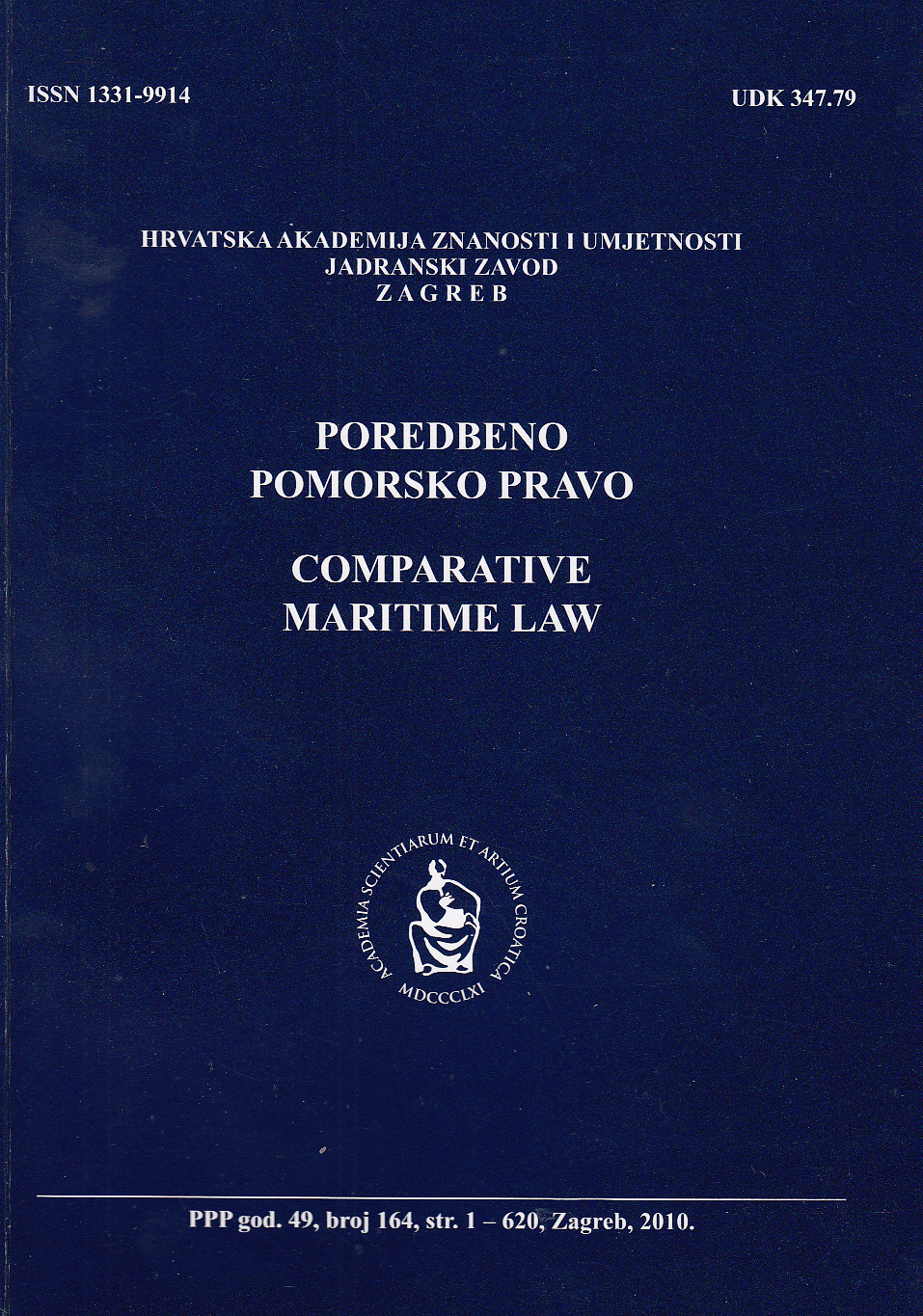Količinski ugovori prema Rotterdamskim pravilima
Volume contracts after the Rotterdam Rules
Author(s): Vesna Polić FoglarSubject(s): Maritime Law, Commercial Law
Published by: Hrvatska akademija znanosti i umjetnosti
Keywords: Rotterdam Rules; volume contract; rights and obligations of the parties; contracting out of the mandatory provisions; carrier’s liability;
Summary/Abstract: At present, it is not unusual that shippers ask for special conditions of transport reflecting their individual business requirements. In such cases shippers and carriers conclude special contracts regulating in detail the service to be offered and its price.Having in mind the obvious economic needs, the Rotterdam Rules allow parties to conclude volume contracts. Volume contract means a contract of carriage that provides for the carriage of a specified quantity of goods in a series of shipments during an agreed period of time. Contrary to the compulsory application of the liability provisions in the existing international conventions governing a carrier’s liability for goods in transit, the Rotterdam Rules allow parties to contract out of much of the obligatory liability regime contained in the Rules. However, there are some provisions of the Rules that the parties to a volume contract may not derogate from, like the duty of the ocean carrier before and during a voyage by sea to exercise due diligence to make and keep the ship seaworthy and properly crewed, equipped and supplied, the shipper’s obligation to provide certain information, instructions and documents, special rules for carrying dangerous cargo and loss of right to limit liability for loss or damage caused with intent or recklessly. At the same time, the Rules forbid the conclusion of a volume contract simply by adhesion. Therefore, the Rules allow parties in the liner trade greater freedom of contract where this is appropriate while at the same time giving mandatory protection to smaller or inexperienced shippers where needed. It is not expected that carriers will always seek to take advantage of smaller volume shippers by forcing them to accept liability and other terms to the shipper’s detriment. Such a risk exists, but is not exaggerated. If the Rotterdam Rules don’t get adopted at the international level in a reasonable period of time, the status quo of the existing regimes will not remain, as it does not meet the contemporary needs any more. Instead, several regional legal regimes are going to be adopted. This would result in a lack of uniformity and conflicts between these regimes, leading to legal uncertainty. Legal costs arising out of this situation will certainly outnumber the legal costs entrained by the introduction of the Rotterdam Rules as a new set of legislation. Therefore, despite some critics of the Rotterdam Rules, their ratification is strongly recommended.
Journal: Poredbeno pomorsko pravo
- Issue Year: 49/2010
- Issue No: 164
- Page Range: 211-222
- Page Count: 12
- Language: Croatian

